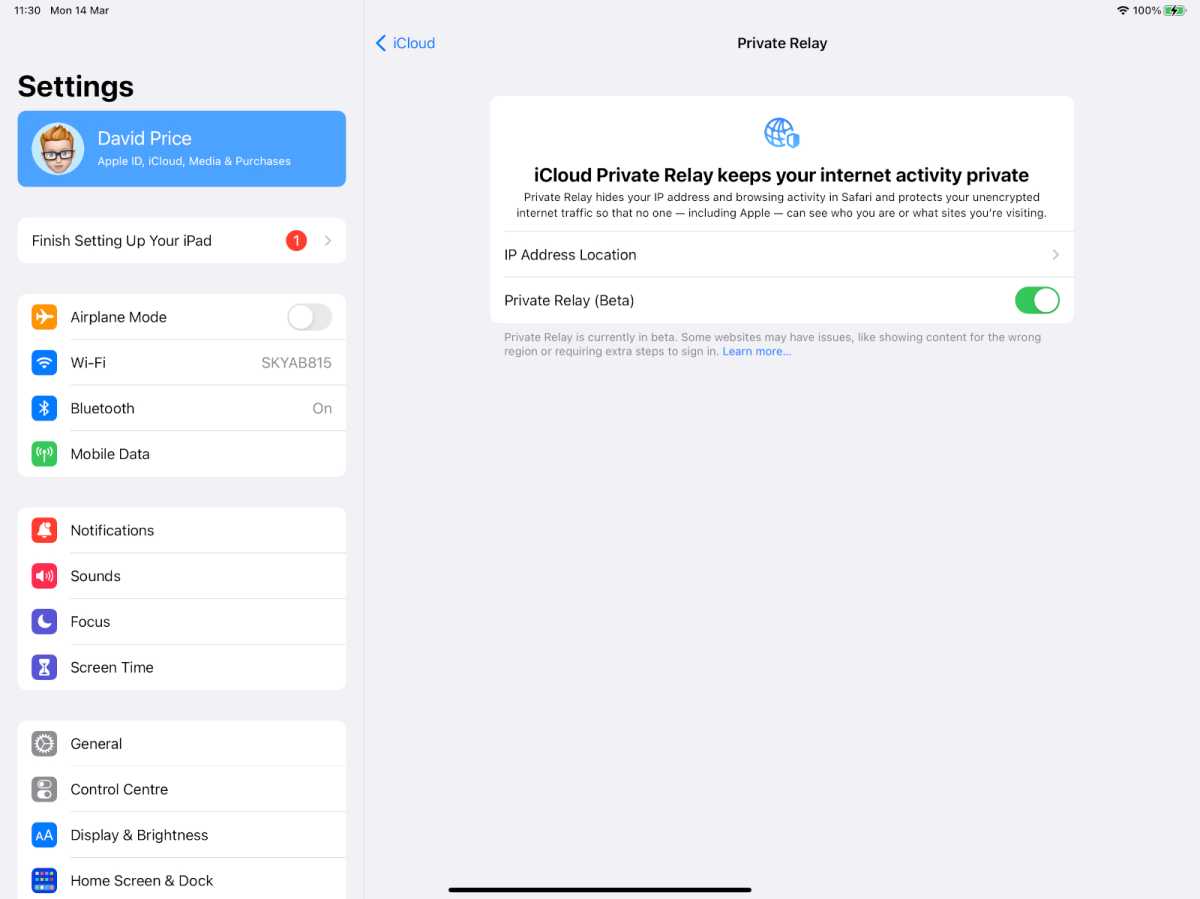iCloud Private Relay under fire in the UK as a safety threat
An industry group representing the interests of UK mobile network operators has attacked iCloud Private Relay, Apple’s VPN-like privacy service for Safari, claiming it will harm competition, worsen the user experience and hinder the efforts of law enforcement to deal with serious crimes. The group calls for greater regulation of the service, including the requirement that it remain off by default and for it to be distributed as a separate app rather than an integrated element of iOS/iPadOS.
Mobile UK, which represents EE, Virgin Media O2, Three, and Vodafone, has released a six-page statement responding to a report on the mobile ecosystem by the Competition and Markets Authority. This report in turn followed and very briefly mentioned a formal complaint about iCloud Private Relay by Microsoft, another party unhappy with the implications of the service.
iCloud Private Relay is similar in effect and method to a VPN, but with certain differences. The idea is that, once the service is enabled by the user, Safari browsing activity is encrypted and diverted through two relays in such a way that no single party has access to the data. This frustrates ISPs because that data is valuable to them in numerous ways.
In the response, naturally, they focus on the ones that can theoretically benefit the user. By monitoring browsing data, for example, Mobile UK says providers can understand consumer trends and better predict and anticipate demand patterns. “Losing this information,” the group complains, “could compromise future network optimization and investment prioritization.”
And as always when a lobbyist group wishes to criticize the use of encryption, the specter of serious crime is invoked. “By preventing network providers and Apple from accessing information on traffic encrypted by the service, Private Relay impairs the insights available under the Government’s investigatory powers,” the statement warns. This will affect law enforcement’s ability to deal with terrorism, organized crime, child sexual abuse, and exploitation, it adds.

IDG
There are eight elements to Mobile UK’s complaint, including the somewhat speculative (“there are reports that…”) claim that browsing performance is impacted by Private Relay and more genuine-sounding concerns about competition and the diminished role of the ISP. Rather than attempting to sum up the group’s entire argument here, we would urge the reader to check out the statement themselves.
But it may not come as a surprise that we find the statement self-serving and disingenuous. Network operators dislike the use of privacy services like Private Relay for one reason and one reason only: because it cuts them out of the loop and prevents them from monitoring and monetizing user data. And the use of serious criminal activity as a pretext for wide-scale surveillance is as contemptible on the internet as it is in daily life.
Apple has plenty of questions to answer about its approach to healthy market competition, but Mobile UK isn’t the group to be asking them.
For all the latest Technology News Click Here
For the latest news and updates, follow us on Google News.
